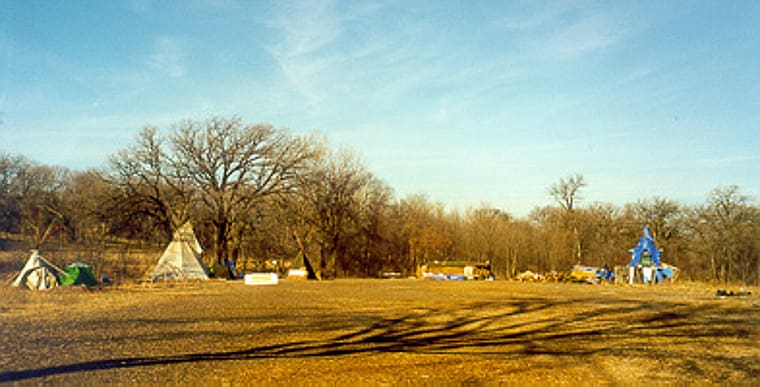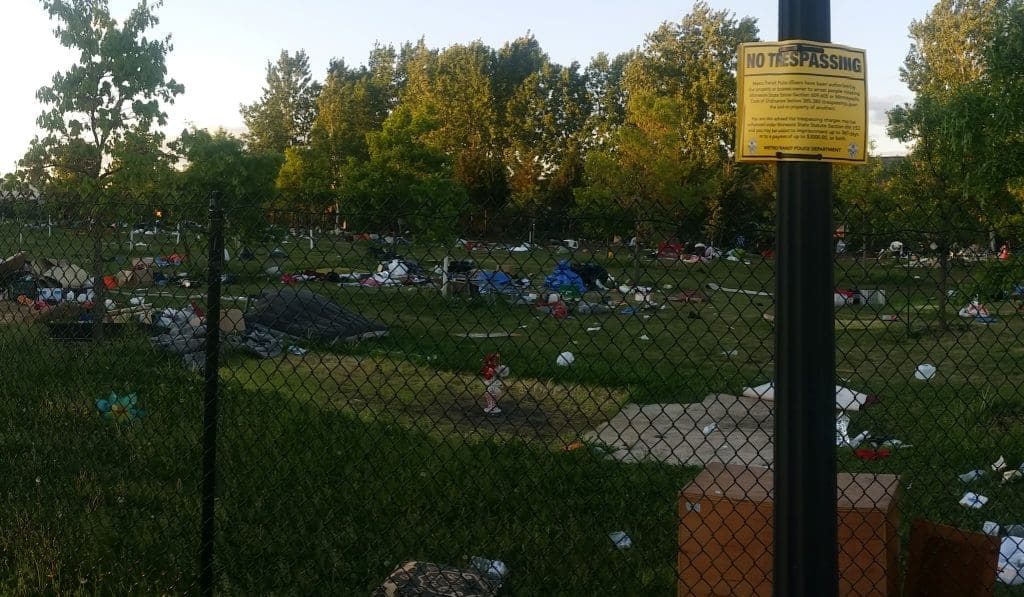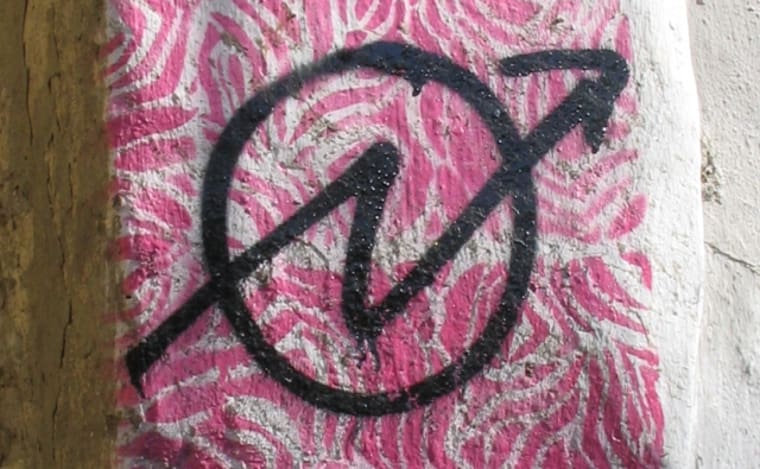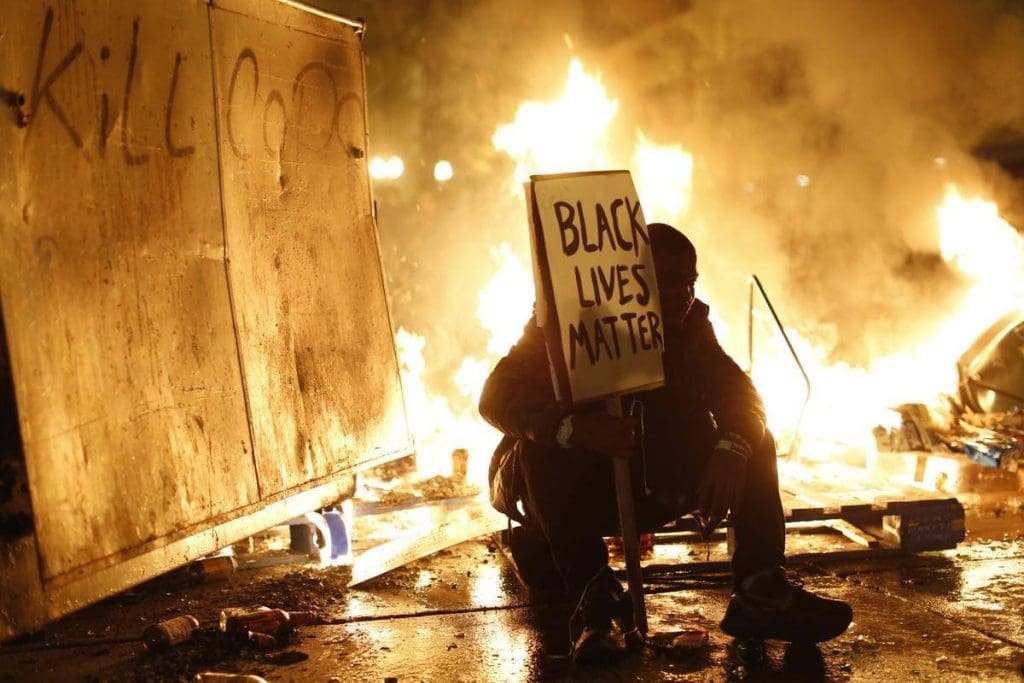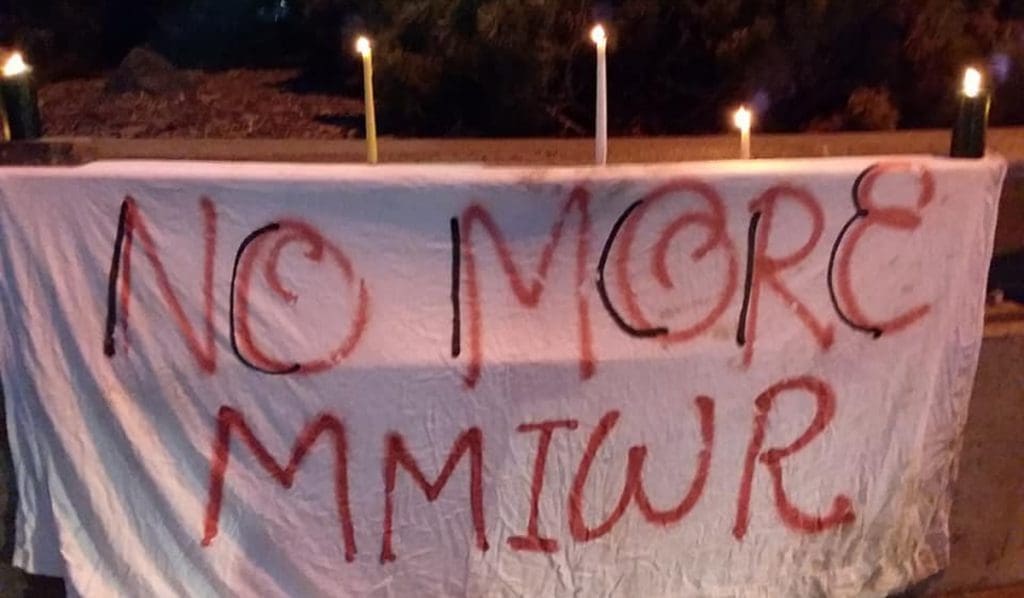AntiNote: As the first installment in our reflection series on the Minnehaha Free State (MFS), we present a handful of edited excerpts from Elli King’s 2006 people’s history of the encampment, Listen: The Story of the People at Taku Wakan Tipi and the Reroute of Highway 55.
In case you missed it, please read our introduction to this series here.
We are picking up the story at a particularly tense juncture, almost exactly fifteen years ago. The following three testimonies deal with events over two days in late July, 1999: the Minnesota Department of Transportation’s first successful attempt to break ground on their still legally precarious project (with extensive police protection), the Free Staters’ attempts at resistance, and a street blockade the following day to protest the state’s violent and destructive actions—which itself was met with more violence.
A few words about the blockade: according to further accounts in Listen, the police repression against the protesters sitting in Hiawatha Avenue was profoundly racist in character, with only Native activists being dragged across the pavement, arrested, and jailed, while white community members were simply told to leave—even when they demanded to be arrested.
Of course, the felling of these first trees and the beating of these protesters—while a significant escalation after months of stalemate—was not the first time the people of Taku Wakan Tipi had been confronted with state violence. The first encampment, for example, which was established in August 1998 and involved squatting homes slated for demolition near the proposed highway construction site, ended with a massive police raid in December of that year. Accounts of this and other struggles that Free Staters experienced over preceding months can be found in Listen, and will likely be discussed in Antidote’s continuing work documenting some of these activists’ paths in the years since.
This is simply to say that this was a long occupation, which took many forms and continually adapted itself to changing political and tactical circumstances, and we are bound to leave out a lot of important details. Our aim is rather to provide a broad impression of what life at the MFS was like, what the people there were like, and how that life there shaped those people. Elli herself put it best:
“When I began collecting these stories, my intention was to make a thorough and complete historical account of this event. As I got close to feeling like I had enough material, I began to try and fill in the gaps in the story, and fret about missing pieces.
One day, as I was reviewing what I had, I realized that this was not only an impossible goal, but also a silly one. The stories that people told me are as complete and perfect as the people who told them, and as true as any culture. That is as real as it gets.”
So. Back we go to Minneapolis, Minnesota, 1999. It was a morning like any other…
The First Trees Are Cut: 27 July 1999
Madeline Gardner: One summer morning, it was pretty early, Emily came in, and I remember hearing in my sleep: “There’s 200 cops up at the lagoon.” That woke me up fast. I jumped up, put my shoes on, found a bike, and rode up there. There was a line of cop cars going up 55 as far as I could see. At that time, they were still starting to put up the orange fence around the lagoon.
A group of us went back to camp, had a little meeting, and decided to take action. The plan we came up with was that three of us would go over the fence right by the street where all the police were, and act as a distraction by being as loud as possible, and the rest of the people would sneak around the back, swim across the creek, and hopefully our diverting attention would give them enough time to climb trees.
I had never really been arrested before, and the adrenaline pumping through my body was unlike anything I’d ever experienced before. The whole world looked different—my job was all I could focus on; everything else just faded away. When we heard the signal, Joe and I and a third person sauntered across the street, and then I didn’t see them anymore. It happened so fast, I don’t exactly remember what I did. I slid underneath the fence on my belly, and as soon as I was under I just got up and ran as fast as I could.
When I had gone over it in my head beforehand, I figured that the cops would grab me as soon as I crossed the fence. But no one grabbed me. I hadn’t planned any further than that! I was running as fast as I could; I didn’t know where I was going. All of a sudden I was very alone, because the crowd was up beyond the hill, and I could feel two cops chasing me! Adrenaline will really do something to you—I think that’s the fastest I’ve ever run in my life!
So I figured, well, I’m in here, I’m obviously somewhat faster than the cops, I might as well try and climb a tree. So I did. I saw a tree, and I tried to run up it. I had one foot up on the trunk, and my hand grabbed onto the highest branch I could reach, and I was in the process of pulling myself up when extremely rough and angry hands grabbed me and threw me onto the ground. They threw me onto my belly and stuck a knee in my back, roughly handcuffed me with those white plastic icky cuffs.
I remember being extremely uncomfortable with a big knee in my back. I wasn’t scared at all. They told me to get up, and I didn’t do it, I just lay there. They grabbed me and pulled me upright, and said, “Walk, walk, you have to walk.” I said, “No, this is sacred land, I’m not going to leave willingly.” They made fun of me about that over and over again. Then they dragged me over to a van, and someone screamed at me, “Who’s your leader? Who told you to do this? Who’s your leader?” I ignored him, but I remember thinking , ‘Wow, these people really don’t know anything at all about how we do things.’
They threw me in the back of this van and I was in there all alone, and there were no windows. Soon the van started driving. I didn’t know where it went, but I knew it was still inside the police perimeter, it only went a little ways. The first thing I had done when they threw me in the van was take off my handcuffs. They didn’t put them on very tight, and I didn’t really like them. Once we stopped again, I started kicking at the door as hard as I could. I couldn’t believe the nerve of them to come to this park and cut down all the trees and put me in a cage! I was in shock.
So I was kicking at the door and screaming as loud as I could. They yelled at me, “Shut up! Shut up!” After that went on for ten minutes or so, a cop opened the door. I hadn’t planned anything, but I jumped out and ran as fast as I could! They said, “Oh, shit! She’s not in cuffs!” If I thought I ran fast before, this time I was really running fast! I don’t know what I thought I was going to do, or where I thought I was going to go, but I remember hearing the heaviest person running behind me, like this thundering. And then he was on top of me, and I hit the ground hard. I went numb. They put me in cuffs, and this time they made sure they put them on tight.
They dragged me, screaming, “Walk! Walk! Walk!” I thought about walking, and I tried to lift one of my legs, and I realized I couldn’t move it at all. I thought about that for a couple seconds, and then I said, “Um, I can’t move my legs, I think I’m hurt.” Either the cop didn’t hear me or he just ignored me, and he laid me in the grass somewhere.
I couldn’t see the crowd. All I could see was this line of cops, and Joe lying in the grass. He was also handcuffed, and he was looking at me really strangely, screaming, “Are you all right?” I thought about that for a little bit, and then I said, “No, I think I’m really hurt.” He started screaming to the crowd—whom he could see, but I couldn’t—that I was really hurt. The crowd got really mad, and put a lot of pressure on the police to get an ambulance. After a while two paramedics came over. By that time I was really in pain. They checked me over a little bit, and then asked one of the cops if they could take my handcuffs off. He said no.
So we sat there for a long time. I was in a lot of pain. Eventually they put me in an ambulance, and we went and picked up my mother. I didn’t know she was there. She came in and looked at me and immediately burst into tears. She said, “They told me you ran into a tree!” That made me mad, and I said, “I didn’t run into a tree, a cop fucking tackled me!” They made her sit in the front. They thought she was too upset to sit in back.
More than four hours after I had gotten hurt, the doctor finally came in. They had given me so many drugs by then, the world was just a haze. I remember being surrounded by people, and then they grabbed my leg and twisted it in a ridiculous way, and all of a sudden this relief just flooded over me, and I became a person again instead of a ball of pain. That was one of the coolest moments ever.
I thought that I could just walk home then, but I ended up being on crutches for a good two months, until October. I remember they kept extending it, waiting to see if the bone would live or die. I was so upset that I couldn’t go back to the Free State, because after that day, a lot of things started happening.

Huck: I was 20 when I got to the Free State. I had just left Chicago and was planning on hitchhiking out to Eugene and applying to the Organizing Institute, to be an organizer, which I’m doing now. I hadn’t been to Minneapolis before; when I got dropped off there I wandered around asking folks if there’s a place to throw up a tent and if there’s any kind of social activism going on. People said, “Well, there’s this place called the Minnehaha Free State, and there’s a bunch of hippies sleeping in the woods. They’re trying to stop a highway or something.”
The first couple of folks I talked to didn’t really know much about it; they had probably just seen a few clips on the news. Then I ran into a kid named Booger at a bar and gyro joint. He sent me down to the Free State. He said that Earth First! and AIM had a joint occupation. I’d heard of Earth First! in passing, didn’t really know much about them, but I was always fascinated with the American Indian Movement. When I was in high school, my mom gave me Bury My Heart at Wounded Knee, said it was one of the most powerful books she had read in college. One of my good friends in high school’s mother was working on the Peltier case.
I walked in at about three o’clock in the morning. I was going the wrong way down the trail—I think I was heading down towards the river—and ran into Marshall on a security shift. I didn’t really know where camp was. Marshall respectfully asked me to come back for breakfast in the morning, so I put my tent up across the road and went to sleep.
I was really amazed walking in the next morning, seeing the sun coming up over the treeline. It was a very impressive sight: the Star Lodge off to your right, peeking out over the trees. This was June of ’99.
It was interesting because it came at a time in my life when I was in transition, and it didn’t have much in common with the path that I saw myself taking. It was a big turning point in my life.
I ended up leaving a few times and coming back. One of the times coming back was a bit before July 27th, when they started cutting trees on the north end of camp. I had been put on security a few weeks before that, was still getting integrated, getting to know folks. I wasn’t really planning on getting arrested that day. When I heard there was cutting on the north end, I went up after the cops had already cordoned off the area. I didn’t really think about it much, but somebody handed me a U-lock, and I ran across the line. Nobody really knew who I was, but people were still willing to trust me and back me up, do my jail support, make sure I got out the next night.
It was the first time I had ever really taken a risk. I knew that I was putting myself at risk of serious bodily harm, possibly getting a broken neck. After a time this sort of thing seemed to be kind of matter-of-fact for most people in camp; we took a lot of risks. People didn’t raise their eyebrows when someone almost got killed; it kind of became routine, being pain-complianced, cops putting people in jeopardy, having no regard for their lives, doing everything they could to get people out of lockdowns.
The Roadsit: 28 July 1999
Jessie: I was down at camp when I was about 13. I was involved through the Mendota Mdewakanton Dakota Community. I’m a member of the community. When I went down the first time, everyone was friendly so I kept going back, and I joined the protest after a while. I wish I was there for the raids, but I was at school. Kind of crappy. The people down there were really nice people. They listened, and were teaching people the ways of how they lived.
It was important to me to be down there because of the Four Oaks. When I was down there, there was a really good feeling of where I was at. I felt safe from anything when I was at the Four Oaks. I could feel the spirits in there, and a lot of power.
We did the roadsit, that’s when I got beat up. It all happened so fast. I got beat up by four cops, two state and two Minneapolis. I was 13. They thought I was 18 years old with a fighting history. Then they didn’t give me medical help until about 25 minutes after, when the elders started yelling at the paramedics to help me out.
A lot of good things happened there that probably won’t happen anywhere else. Everyone helped with what needed to be done; peaceful, respectful. You can’t find that stuff at most of the powwows you go to. I travel the state, and they don’t even care who you are. Down at camp, everyone helped out everyone. Even the crooks helped everyone out. There was a lot of people of different races there, like the four colors of the medicine wheel. There was always a place for people to sleep down there; a lot of places you can’t get that.
Everyone at that place helped me learn more of my own heritage. When I was down there I probably learned more than I ever would in school. I liked being down there because I was being taught different ways than the school would teach me, and the different ways of the cultures that were there. It was a good thing to go to.
Featured Image source: Faces of Resistance. Their photo gallery entitled Highway 55 provides a thorough and sensitive documentation of nearly the entire timeline of the Minnehaha Free State

